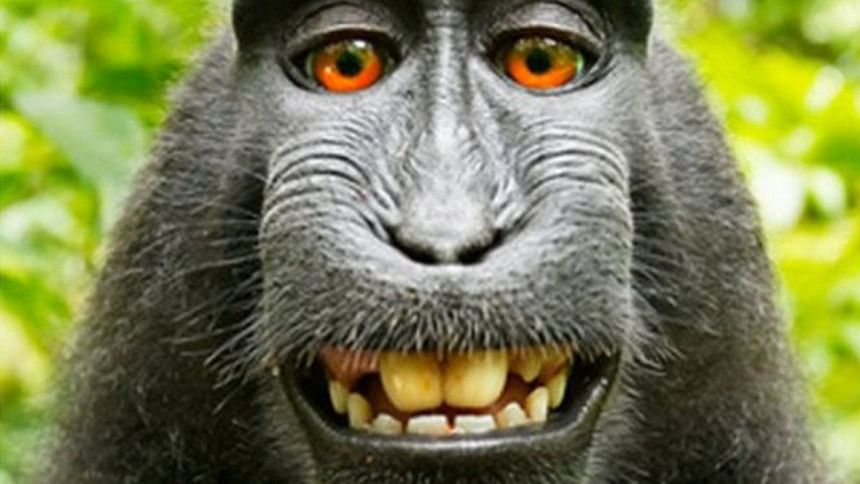Monkey cannot own copyright to 'selfie,' US judge says

A rare crested macaque that took a now internationally famous "selfie" cannot own the copyright to the photograph because he is not human, a US judge ruled in a suit brought by animal rights group PETA on behalf of the monkey.
People for the Ethical Treatment of Animals brought the case in September on behalf of the seven-year-old monkey Naruto against British photographer David Slater, who self-published the photo in a wildlife book.
Naruto, who resides on a reserve in Indonesia, took the image and several others in 2011 using a camera left unattended by Slater, the suit said. PETA argued he should be declared owner of the photos and receive damages for copyright infringement that would be used for habitat preservation.
While the US Congress and the president have the power to extend legal protections to animals as well as humans, "there is no indication that they did so in the Copyright Act," US District Judge William Orrick said at a hearing on Wednesday in federal court in San Francisco, according to a court transcript.
But Orrick said he would give PETA an opportunity to amend the lawsuit before he dismisses it outright. PETA published the photo in the case online at bit.ly/1V8Hnnl.
PETA General Counsel Jeff Kerr told Reuters on Thursday that the group is reviewing its legal options.
"Although we are disappointed, we are celebrating the fact that this is a historic case," he said. "For the first time we are arguing that an animal can own property, rather than merely being a piece of property himself."
Slater, who said that fewer than 100 copies of the book have been sold worldwide despite the publicity, asked Orrick in November to throw out the case because, he argued, animals do not have legal standing. "Monkey see, monkey sue is not good law," he said in court papers.
Slater's lawyer, Andrew Dhuey, said that even if PETA can now amend its lawsuit, Orrick will likely rule in his client's favor.
"My tuxedo cats could have won this case," he said. "It's not a complicated situation. All that really matters is that the plaintiff is a monkey."

 For all latest news, follow The Daily Star's Google News channel.
For all latest news, follow The Daily Star's Google News channel. 








Comments